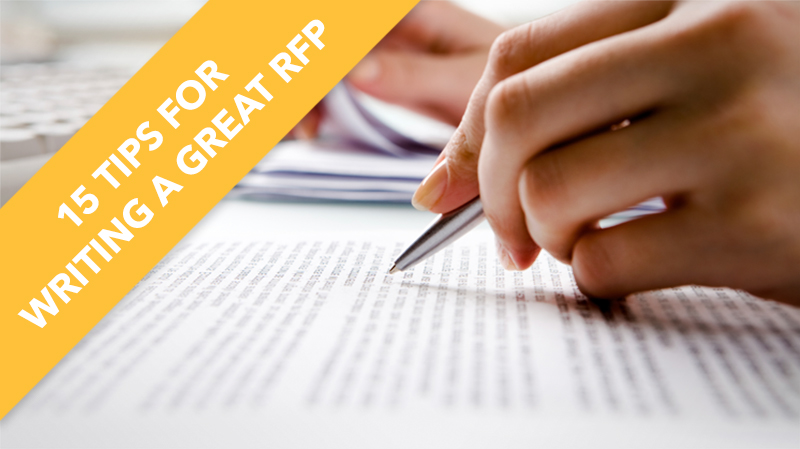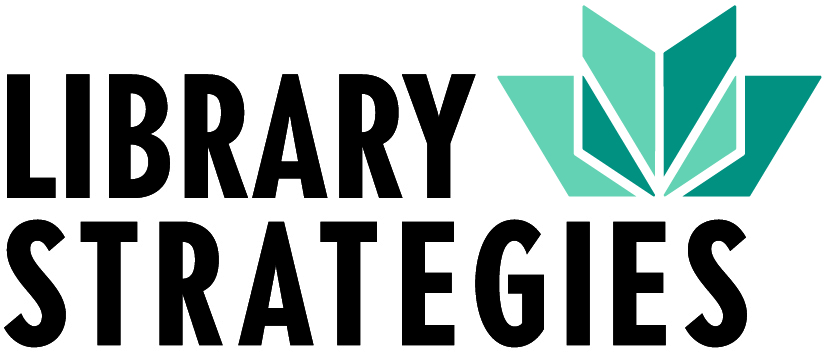15 Tips for Writing a Great RFP

Naturally, we see a lot of RFPs (Request for Proposals) come through our doors each week. Unfortunately, most RFP’s are anything but straightforward and are often complicated by over direction or unnecessary information. We decided to compile a few tips to write a great RFP that will better help your organization fulfil its needs while finding a consultant that is the right fit.
1) Identify Key Aspects of Your Project.
Start by working with your staff to determine all the key aspects of your project: timeline, key players, desired outcomes and deliverables, budget, special elements of the projects, etc. By including this information in your RFP you’ll increase your chances of receiving proposals that better address your needs.
2) Organize Information.
Create an outline of the RFP that is simple and addresses each of these key aspects.
3) Be Open.
Include a brief description of your library or your library support organization and openly share any information that would be pertinent to your project.
4) Keep it Simple.
Make sure that your RFP is clearly written and well organized. Avoid giving too much information. The best RFP’s are no more than 2 pages long.
5) Don’t Prescribe the Process.
You can tell a lot about consultants by the way they articulate the process they intend to use. If there are essential elements that you want included in the project, name them but ask the consultant to describe how they would carry out the task(s). For example, “How would you conduct a community survey?” Or, “How would you identify individuals to participate in a feasibility study?” “How would you conduct a staffing assessment?” Ask direct questions that will allow the consultant to give you truly valuable insight into their capabilities.
6) Request Examples.
Ask for a description of similar projects the consultant has worked on – and references from these projects. This will ensure that the consultant you hire is skilled in the area of expertise your project requires.
7) Words Matter.
Use language that is fresh and open. This encourages creativity in responses from consultants that is much easier to read than stilted “proposal writing.”
8) It’s All About Timing.
Create a reasonable timeframe for your project. This is beneficial for your staff and other participants in your project and it ensures that the consultant you hire will be available for the timeframe you need them.
9) Give Them Time.
Create a reasonable timeline for responses to your RFP (no less than 6 weeks!). This allows consultants time to prepare a thoughtful and detailed proposal.
10) Distribute Your RFP Broadly.
Post or distribute your RFP in a commonly used format (PDF or Word document). Ask colleagues to pass it along to individuals or firms they’ve worked with (and liked!). Post your RFP on appropriate websites such as libraryconsultants.org.
11) Include a Lead Contact.
Designate a contact who will be willing to respond to questions about the RFP or your organization.
12) Share Info on the Selection Process.
Articulate the process for selecting a consultant or consulting firm (e.g., “Phone/Skype interviews will be held during the week of…” or “Final 2-3 candidates will be invited to participate in an interview on xx date”).
13) Define Selection Criteria.
Tell potential responders what is most important to you: e.g. experience with your particular type of project, understanding of current challenges, trends for libraries (remember, not all consultants know the library world), proposed budget, etc.
14) Share the Budget.
Whenever possible, share the budget for your project. By doing this, you will receive richer and more relevant proposals. This sends the message that you are serious about your project and not just “trolling” for any interested consultant. And, frankly, it allows the consultant to determine if they can do the work you need within their own financial constraints.
15) Legal Requirements.
If your organization is bound in its contracts by legal requirements (city, county or other governing bodies), include this information as an appendix.

